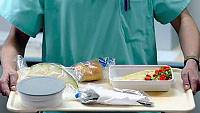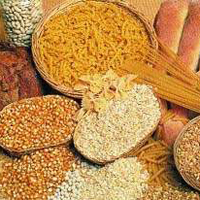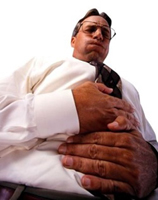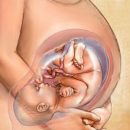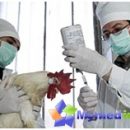What is gastroenteritis? How manifests and how is treated? Read in this article.
Content
Gastroenteritis
Most people call this disease Viral enteritis, food poisoning. Gastroenteritis is characterized by a serious stomach disorder; It is usually accompanied by diarrhea, nausea, vomiting and spasms in the stomach. People of all ages are sick; In weakly developed countries is the most common disease, often threatening life. The disease is especially dangerous for older and weakened people. However, most adults it proceeds without complications.
Causes of the development of gastroenteritis
The reasons for the development of the disease, including acute food poisoning caused by bacteria, amoebas, viruses, toxins (for example, poisonous mushrooms), reaction to drugs (antibiotics), insufficiency of enzymes and food allergies.
Manifestations of gastroenteritis
Symptoms may be weakly or strong, depending on the type of toxin and its quantity. Usually there are diarrhea, discomfort in the abdomen, nausea and vomiting. Among other symptoms, you can call the temperature rise, general poor health and a rumbling in the stomach.
Diagnosis of gastroenteritis
The diagnosis is made on the basis of a survey of patient, laboratory studies of feces and blood for the presence of bacteria or parasites, which can cause gastroenteritis.
Treatment of gastroenteritis
The doctor recommends resting more and consume more fluid. Children and people with weak health can be offered hospitalization. Anglery, certain antibiotics are prescribed and, if necessary, intravenous liquids and electrolytes.
If you have gastroenteritis, then you need
- Do all the directions of the doctor, then you can maximize your condition (for example, take a controversial for 30—40 minutes before meals).
- More drink; Remove the loss of liquid with broth, gingerbird or lemonade.
- Diverse your menu to get more pleasure from eating, but avoid milk and dairy products, they can lead to resumption of infection.
How to avoid diarrhea while traveling
Precautions when drinking drinks
- For drinking and cleaning teeth, use only chlorinated water. Chlorination protects against bacteria.
- Drink refreshments only from your glasses.
- Do not use ice cubes, for the preparation of which water could be used, in the purity of which you doubt.
- Ask drinks cooked on boiled water (coffee and tea), or soft drinks in bottles or tin cans.
- Disinfection of water by adding 2% in it with a tincture of iodine (5 drops per 1 liter of transparent water, 10 drops on 1 l of muddy water).
Precautions for food use
- Avoid eating raw vegetables, fresh fruit with peel, salads, nonpasteurized milk and other dairy products.
- In weakly developed countries, we can safely buy food from street merchants.
How to avoid food poisoning
In most cases, food poisoning is caused by bacteria, which are present in food, on the canteen devices and cutting boards or on your hands.
Precautions during food
- Wash your hands thoroughly before meals.
- Do not mix food with your hands.
- If you have cuts or sores on your hands, wear plastic gloves.
- Wash the lids of cans before opening them.
- Wash cutlery and cutting boards used in the preparation of dishes from raw meat or poultry, hot water with soap before and after use.
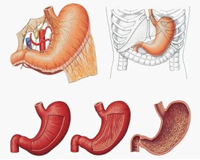 Precautions when buying and storing products
Precautions when buying and storing products
- Purchased products Try to put in the refrigerator so that they are as few times as possible at room temperature.
- Meat, frozen and dairy products buy last. When you choose products in the store, do not take products partially defused or in needed or cracked packages.
- Surishable products Buy in small quantities.
- Do not hold the bird or meat in the original packaging more than 1—2 days. Watch them into the wax paper or place in plastic bags. If you put them in the freezer, tightly wrap the products and slightly. Use first what was bought before.
- Trust your eyes and nose: if products look or smell suspiciously, without regret, throw them away.
Precautions in the process of cooking
- Split products in the refrigerator. If you are in a hurry, put them in warm water, use the microwave or start cooking until they have not yet fully understood. Never defrix products on a cutting table.
- Wash the bird thoroughly. If you are preparing a bird with a filling, start it immediately before cooking and not tightly so that the filling can pass high temperature processing (at least 73.9°).
- To destroy bacteria, heat the food to a high temperature, especially if you are preparing dairy products, eggs, meat, bird, fish and mollusks. Use a special thermometer to measure the temperature inside the meat product.
- Serve hot food hot, and cold snacks cold.
- Keep the foods left after meals in the refrigerator, observing all measures to prevent their damage. Do not forget to warm them up to high temperatures.
- Avoid eating raw fish, meat and unpasteurized milk, if you are not sure that they were prepared in compliance with all the rules of hygiene.
Take precautions during travel and when cooking. Contact products correctly to prevent exacerbation of the disease.



